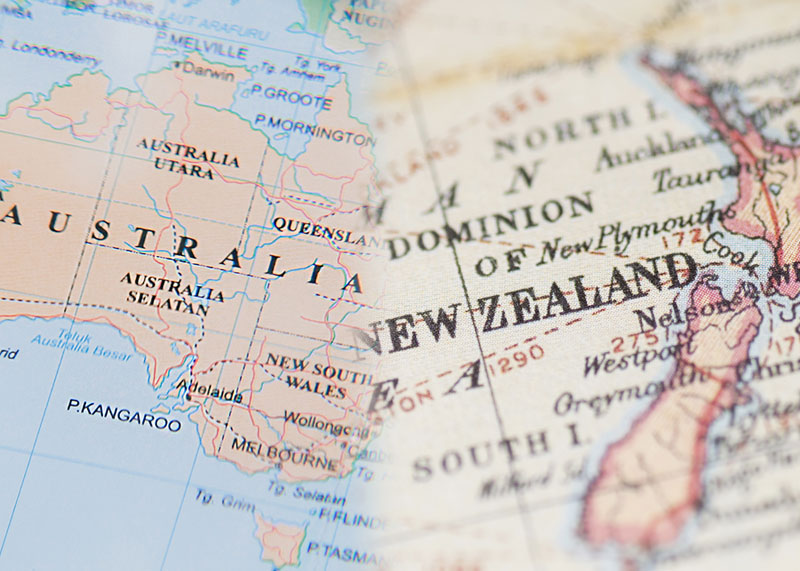This article was originally appeared in THE DAILY TELEGRAPH AUSTRALIA, by the author John Storey (Research Fellow at the Institute of Public Affairs)
Later this year, Australians will be asked whether or not they support the establishment of an Indigenous-only Voice to Parliament.
As we emerge from the summer holidays, it is fair to say not many of us have engaged in the debate over its much-vaunted merits to date.
But even if you were so inclined to pay attention over the summer, you would be forgiven for not being able to find much, if any, authoritative advice on the proposed Voice’s effects and consequences.
In 2020, now Prime Minister Anthony Albanese stated he wanted Australia to follow New Zealand’s lead on Indigenous reconciliation.
On February 6 2020, he posted to social media: “We can learn a lot from our mates across the ditch about reconciliation with First Nations people. New Zealand has led the way. It’s time for Australia to follow.” He concluded by saying: “It’s time to support the Uluru Statement from the Heart.”
The centrepiece of the Uluru Statement is having the proposed Voice to Parliament enshrined in the Australian constitution.
Therefore, it is critically important to consider what it will look like if we follow New Zealand’s lead as Mr Albanese desires.
The Institute of Public Affairs has undertaken a detailed analysis of New Zealand’s Maori Voice to Parliament, the Waitangi Tribunal, and how it might inform the operation of the proposed Voice to Parliament in Australia.
At the heart of New Zealand’s ‘reconciliation’ are the laws and rights built on the Treaty of Waitangi, an 1840 agreement establishing peace between New Zealand’s native Maori people and the British.
When the Waitangi Tribunal was established in 1975, its purpose was only to make recommendations to parliament about grievances arising from this treaty.
In other words, the Tribunal started as a Maori advisory body, something that proponents of the Australian Voice claim will also occur here.
However, in New Zealand’s equivalent to the Mabo case, the Lands Case of 1987, New Zealand’s highest court held that the Treaty of Waitangi was binding on the New Zealand government, in effect becoming New Zealand’s second constitution, although no New Zealand voter got a say in the matter.
The court held that: “If the Waitangi Tribunal finds merit in a claim and recommends redress, the Crown should grant at least some form of redress, unless there are grounds justifying … withholding it – which would be only in very special circumstances, if ever.”
Just like that, the advisory body was granted powers to interfere and demand changes in the law and public policy. Since then, the decisions of the Waitangi Tribunal have been driven by activists pushing race-based policies.
Some of the decisions of the Tribunal have included granting explicit Maori veto powers over legislation affecting land management and property rights.
The Waitangi Tribunal has even held that the government could not amend laws it had previously passed.
The scope of the Waitangi Tribunal has also greatly expanded over time. The Tribunal has involved itself in everything from international trade agreements to Covid-19 policies demanding Maoris get priority to vaccines rather than those who are in medical need, and to electoral laws allowing prisoners to vote to increase Maori electoral participation.
Some decisions have been downright dangerous and Orwellian. To reduce Maori incarceration rates, justice department officials must learn “Treaty-based thinking”.
There are serious lessons for Australia in the New Zealand experience. Some argue such outcomes are not possible here. The Prime Minister continues to assert, for example, that the Voice to Parliament would only be a source of advice, “not a third chamber, not a rolling veto, not a blank cheque”.
But the PM, and supporters of the Voice, simply cannot give these assurances. Once something is inserted into our constitution, it is the High Court that will determine its powers. All control is taken out of the hands of the Australian people.
Australia is no stranger to High Court judicial activism.
Former Australian High Court justice Ian Callinan has warned there could be a “decade or more of constitutional and administrative law litigation” as a result of a ‘yes’ vote for the Voice. The effect of which will be to stymie the already ineffective workings of Federal Government.
In an attempt to divert attention away from addressing critical questions about the proposed Voice to Parliament, supporters have stated its nothing more than a “modest request” in the name of reconciliation.
The great majority of Australians enthusiastically want a better life for our Indigenous communities, however, by refusing to be open and honest about the consequences of the Voice, its proponents may well end up being the biggest threat to reconciliation this century.
What the New Zealand experience shows is that the Voice to Parliament is not a modest request.
It is a dangerous demand which risks dividing our nation by race.
___________________________________________________________________________________________________________
A fascinating video interview on the history and impacts of racially specific laws in New Zealand is available here.

